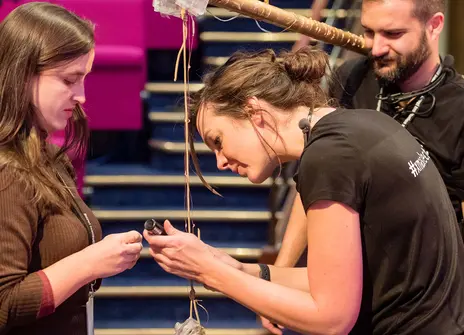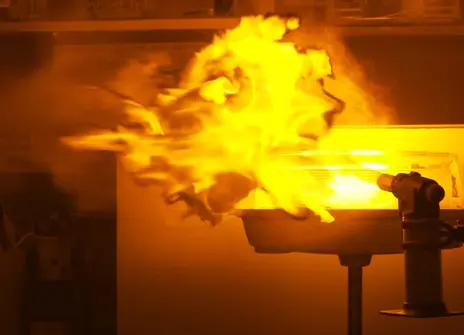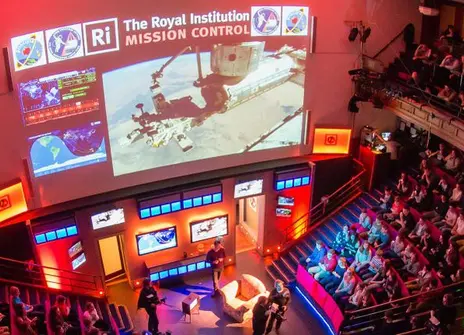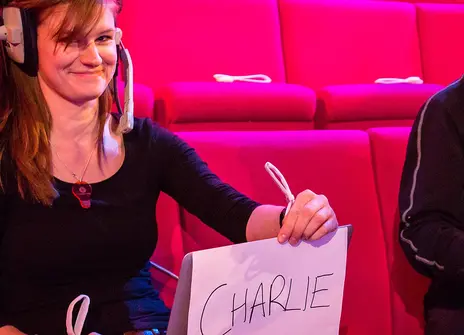Since leaving sixth form I'd always worked in science, first as an undergraduate working summers in the lab and then as a PhD student. Despite having always worked in science, I'd never really understood how or even why science was communicated to the wider world. I saw science as being complicated and niche and these were, and are still, some of the reasons I love it.
Working at the Royal Institution changed all of that. Their goal for over 200 years has been to help people engage with science for the maximum benefit of society, and the work they do is remarkable. What feels like a small and close-knit team pulls together to deliver public talks, Ri Masterclasses for students up and down the country, family education days, short courses for adults, award-winning films on the Ri Channel and of course the staggeringly ambitious CHRISTMAS LECTURES.
My role within the Ri centred around communicating the science of the CHRISTMAS LECTURES to newspapers, blogs, television and all in all the media that the majority of people connect with daily. This element of science communication was something that I had never come across, and to learn the process as someone who works in academia was eye-opening to say the least. Having had time to reflect on my experience I now believe that getting involved with science media is something that all scientists should aspire to for some very important reasons.
The usual way in which science goes from the laboratory to the newspaper involves the research first being accepted for publication in a peer-reviewed scientific journal. If the university or the researcher decides that the work is of interest to the general public, the soon-to-be published paper is forwarded to the press office of the university or research council who funded the research. Equally, the journal itself may decide to use the paper as the focus of a media pitch. This is the point where the scientist responsible for the research may step back from the detail, allowing the relevant press office to interpret their paper, draft a media release and, with the scientist's approval, send it off to news outlets around the country.
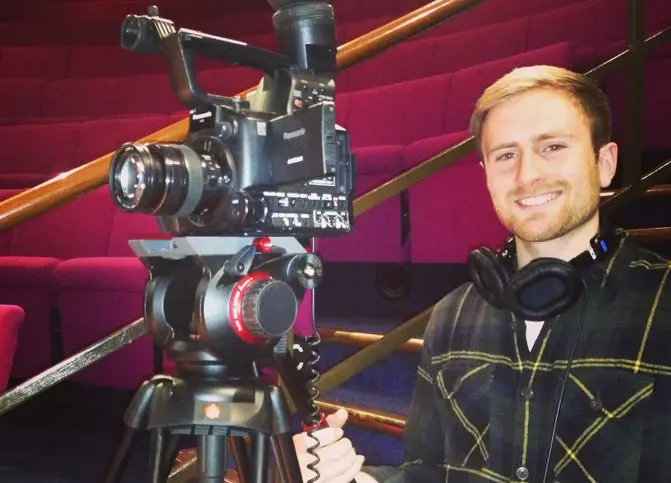
Media releases can heavily influence what will eventually be reported as news and so what goes into the media release is of principal importance. Having learnt how the process works therefore, the approach some researchers take to engage with the general public through the media surprises me.
The reality is that science exists within peer-reviewed papers, which by their nature are incredibly detailed and complicated documents in which the results from an experiment are analysed within the field and a whole range of possible explanations are discussed in depth. Scientists therefore have an obligation to make sure that the full content of their papers is accurately translated into a media release that is not only simple to understand but also correctly reflects the findings and conclusions that research originally set out to find. Sometimes researchers can overcomplicate matters by worrying more about how their own scientific peers may view the media release and subsequent coverage, rather than how a journalist will interpret it and how the wider public will understand it. Some scientists may have become too close to their work to appreciate how surprising or fascinating their results would be to the media and the public to whom the topic could be entirely new. Furthermore because some scientists do not understand how media works or choose not to get fully involved in the process, their results may be misinterpreted in the media release and/or coverage. Down the line this could lead to misleading articles that exaggerate findings or even get the wrong end of the stick entirely. If science is the pursuit of what is true and accurate, such incidences should be extremely worrying.
It should be noted that this is in no way a criticism of how scientists, media departments and press offices operate, I believe they all play a fundamental role in engaging the public with science. The ability to turn science into a story that will captivate people, who often might not see themselves as having in interest in science, is a real talent that I've witnessed first-hand in the Ri's own media department. It's also something that I found the most challenging coming from a science background. At the end of the day, no matter how accurate the science is, if it's not presented in a way that's interesting and relevant then people simply aren't going to want to read or hear about it!
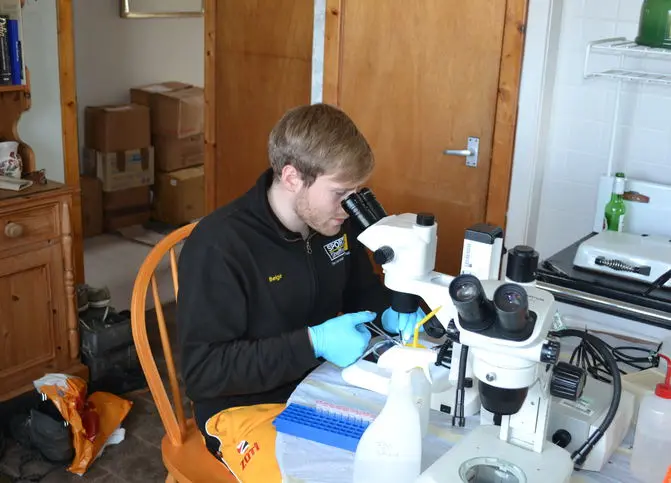
Working as the CHRISTMAS LECTURES Media Assistant allowed me to develop a whole range of skills within the media. I helped to write media releases for Ri events and advent content, which helped me to learn about what goes in to making a story enticing. I also worked towards taking the hard facts within the CHRISTMAS LECTURES and turning them into stories and feature pitches. I was able to develop my layman's writing skills through ghost-writing and also learned about how to liaise with journalists. These are the sorts of skills that can help scientists address the issues raised above, and as such the experience overall was hugely rewardable.
My time at the Ri was not only thoroughly enjoyable but a real education as well, and it would be something that I'd recommend to anyone working within science. An understanding of how science is communicated to the wider public should be invaluable to researchers and having an understanding of how press offices and journalists operate is key. I believe that scientists should not only take an interest but push for their research to be published in the mainstream media, and in doing so they should assist the relevant press office in disseminating their work into something accurate, understandable and above all else fascinating.

